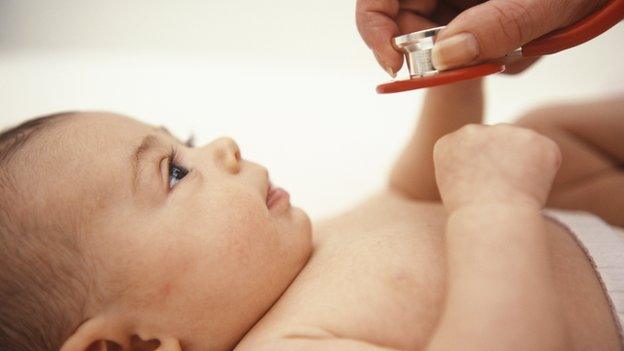Baby heart images could help reduce miscarriage, Leeds research suggests
- Published
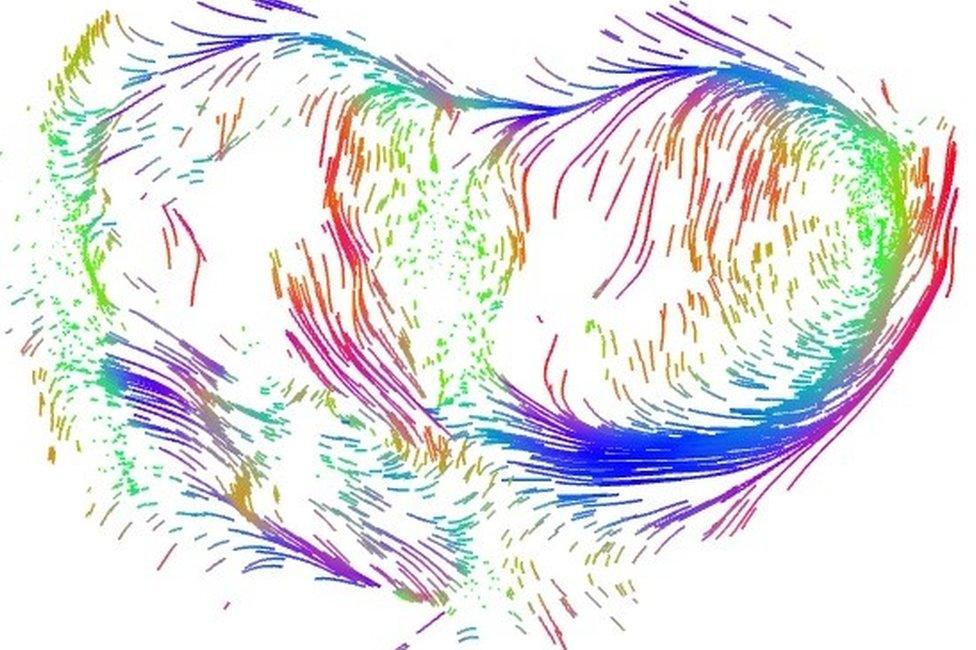
Cross-section image of a baby's heart at 124 days
Doctors have identified a key stage in the development of a baby's heart which they say could help them reduce the number of miscarriages.
New imaging techniques have shown that the four chambers of the foetal heart develop in just four days.
They hope the findings will mean doctors could intervene when a baby's heart fails to grow properly.
One in 10 miscarriages is believed to be caused by the failure of the heart to form normally, researchers said.
Live updates and more news from Yorkshire
Dr Eleftheria Pervolaraki, lead researcher at the University of Leeds, said: "We have identified a critical time of development of the human heart in pregnancy.
"We have used a technique developed to give us higher details than ever before.
"When all the fibres, muscles and cells achieve the formation needed to see in an adult heart, when they all do that you have a fully-formed organ free of risk.
"If it doesn't reach that state it leads to an additional risk of miscarriage."
The images used MRI technology and 3D computer software and found the "most remarkable changes" occurred at 124 days into the pregnancy.
Without this four-day development the foetal heart cannot survive outside the womb.
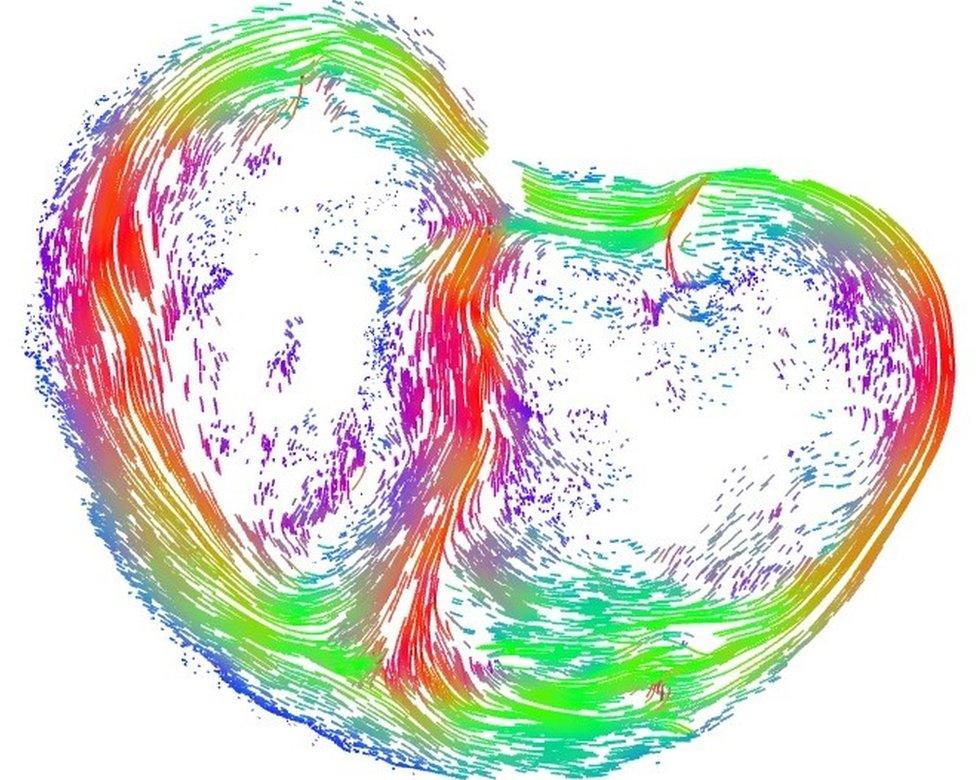
A cross-section image of a baby's heart at 128 days
Identifying when the chambers develop means doctors could eventually monitor babies during this critical phase.
Currently doctors can only effectively monitor a baby's heart after 20 weeks, researchers said.
Dr Pervolaraki, from the School of Biomedical Sciences at Leeds, said: "We now have a map that we can use to interpret problems during development and look at ways of trying to resolve those problems."
The research, external published in Nature journal's Scientific Reports took images of 23 foetal hearts between 95 to 143 days in the womb.
The team helped by the Universities of Durham and Edinburgh also identified a possible protein mechanism involved in heart development.
- Published8 August 2017
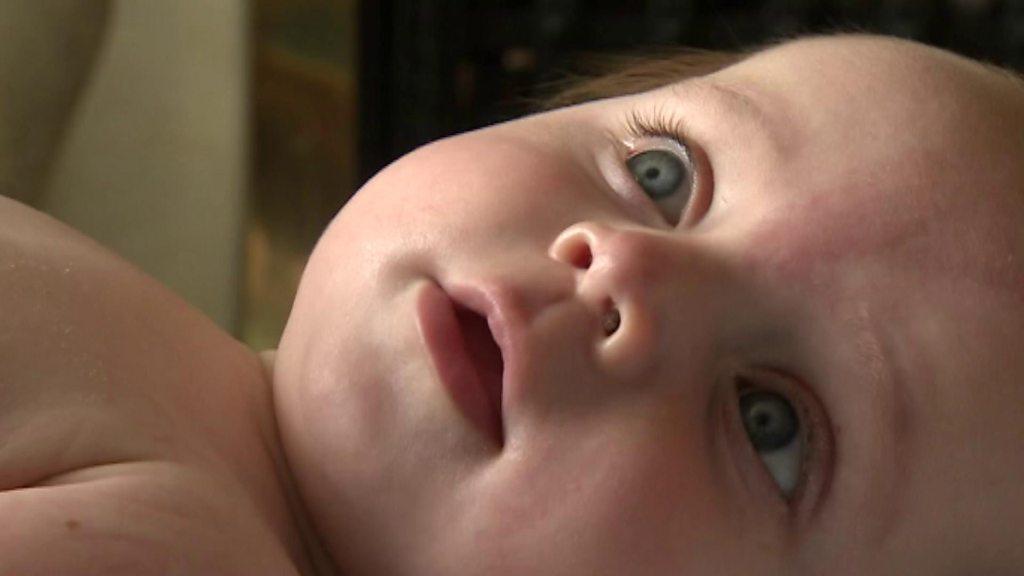
- Published23 September 2016
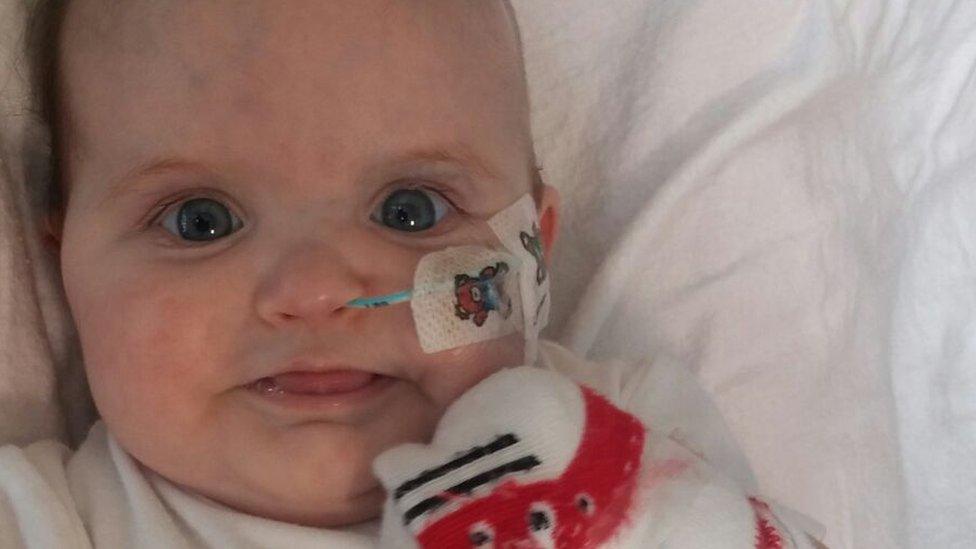
- Published25 August 2015
